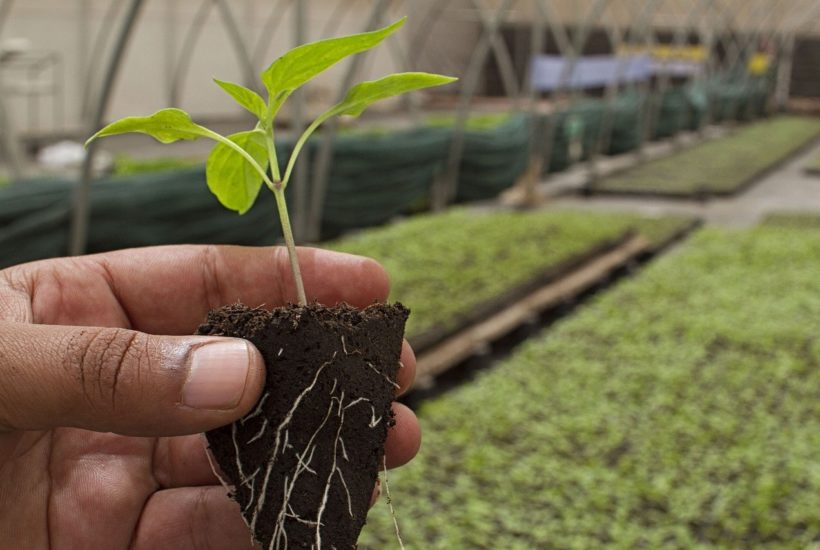Africa
Agriculture: the Spanish sector fears its Moroccan rival
Spanish producers accuse the new food chain protection project of benefiting Morocco’s agricultural export sector. According to their prognosis, Moroccan exporters will have more leeway to sell their goods at more competitive prices, since their Spanish competitors will have their hands tied and cannot lower prices. This lobby multiplies attacks to thwart national competition.

The Spanish fruit and vegetable sector is attacking its Moroccan competition, through the bill to amend the law on the food chain. The project, which will be discussed during this week by the Agriculture Committee of the Spanish Lower House, strongly mobilizes the agricultural sector of the neighboring country. A priori, it is legislation that the sector has been demanding for ages, namely that selling prices cover production costs.
Read more on the subject and find why Spanish farmers are afraid of the Moroccan ones with the Born2Invest mobile app. Our companion app brings you the latest economic news in the world, from the most trusted sources.
The new legislation should protect Spanish producers
Once the legislation is passed, producers will be better off: their products can no longer be marketed below cost price. This new legislation should protect Spanish producers from abuses by large distributors. However, not everyone agrees with it. Even worse! The lobby of producers and exporters believes that this new measure should serve the interests of the Moroccan export industry and allow it to further establish its place on community stalls. In fact, for this group, the Moroccan agricultural export sector has become the all-purpose argument to protect its position and displace all competition.
For Spanish agricultural producers, this new legislative standard will help to further boost demand for Moroccan shipments, given their very competitive prices. Because, according to the arguments of the Spanish agricultural sector, the establishment of a reference price is certainly a laudable measure, but it should also apply to agricultural shipments from third countries.
Otherwise, Iberian farmers believe that this measure will greatly benefit Moroccan agricultural exports
According to their prognosis, Moroccan exporters will have more leeway to sell their goods at more competitive prices, since their Spanish competitors will have their hands tied and cannot lower prices. Under no circumstances can these prices be lower than the natural price. On the other hand, they deplore, exporters cannot market their goods as long as the tariffs are below the cost price. “Thus, Moroccan production will take advantage of this to liquidate everything that the Spanish horticultural sector can not place below the cost price,” lamented the association of organizations of fruit producers and horticulture (COEXPHAL). That will lead, added the organization, a Moroccan and Dutch domination on this market.
On the one hand, it demands better protection against large distributors, accused of dictating their law and pulling down prices, to the detriment of producers. On the other hand, it hopes to eliminate Moroccan competition by imposing a purely Spanish legislation. For this lobby, the conditions of production are not the same, as the labor deemed more affordable in the kingdom. However, what it seeks is a severe protectionism, which eliminates any desire for competition. For the time being, the Spanish government refuses to make any amendments to this project.
__
(Featured image by yassineexo via Pixabay)
DISCLAIMER: This article was written by a third party contributor and does not reflect the opinion of Born2Invest, its management, staff or its associates. Please review our disclaimer for more information.
This article may include forward-looking statements. These forward-looking statements generally are identified by the words “believe,” “project,” “estimate,” “become,” “plan,” “will,” and similar expressions. These forward-looking statements involve known and unknown risks as well as uncertainties, including those discussed in the following cautionary statements and elsewhere in this article and on this site. Although the Company may believe that its expectations are based on reasonable assumptions, the actual results that the Company may achieve may differ materially from any forward-looking statements, which reflect the opinions of the management of the Company only as of the date hereof. Additionally, please make sure to read these important disclosures.
First published in LesEco.ma, a third-party contributor translated and adapted the article from the original. In case of discrepancy, the original will prevail.
Although we made reasonable efforts to provide accurate translations, some parts may be incorrect. Born2Invest assumes no responsibility for errors, omissions or ambiguities in the translations provided on this website. Any person or entity relying on translated content does so at their own risk. Born2Invest is not responsible for losses caused by such reliance on the accuracy or reliability of translated information. If you wish to report an error or inaccuracy in the translation, we encourage you to contact us.

-

 Africa6 days ago
Africa6 days agoTunisia Holds Interest Rate as Inflation Eases, Debate Grows
-

 Crypto2 weeks ago
Crypto2 weeks agoEthereum’s Growing Capacity Puts Pressure on Layer 2 Platforms
-

 Fintech20 hours ago
Fintech20 hours agoRuvo Raises $4.6M to Power Crypto-Pix Remittances Between Brazil and the U.S.
-

 Cannabis1 week ago
Cannabis1 week agoCannabis and the Aging Brain: New Research Challenges Old Assumptions
























